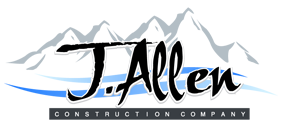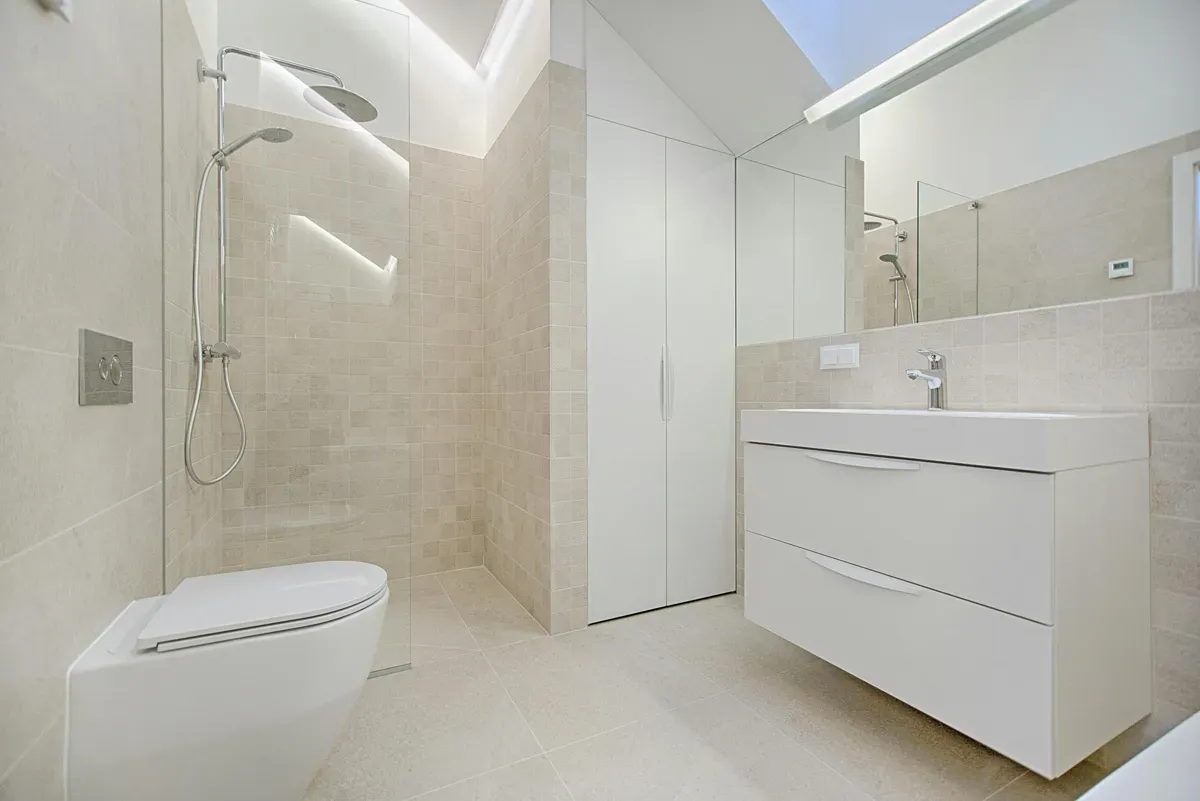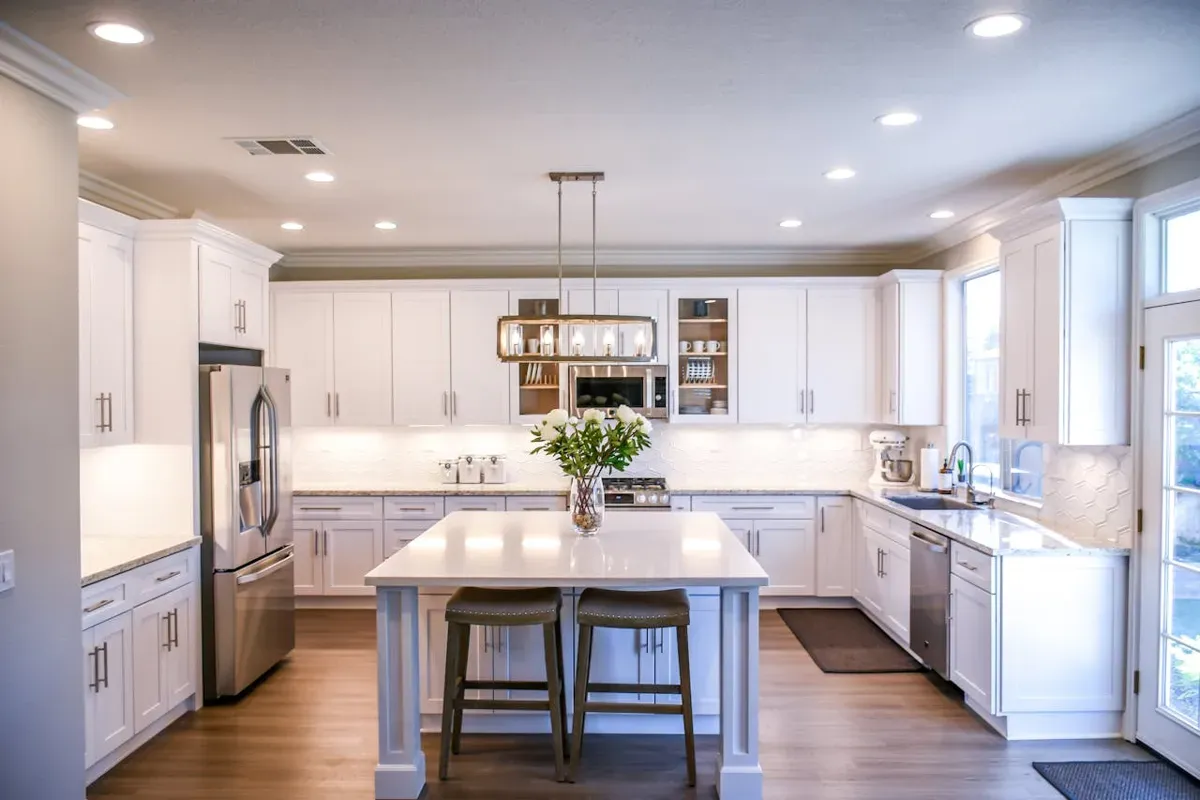How do Home Improvement Loans Work in Colorado?
As custom home builders and renovators in Colorado, we understand the unique challenges and opportunities that come with enhancing your home in the Centennial State. Whether you're looking to modernize your kitchen, add energy-efficient windows, or undertake a complete remodel, securing the right financing is crucial. Let's explore the various home improvement loan options available to Colorado homeowners.
Understanding Home Improvement Loans
Home improvement loans are financial products designed to help homeowners fund renovations, repairs, or upgrades to their properties. These loans can be:
- Secured Loans: Such as home equity loans or lines of credit (HELOCs), which use your home as collateral.
- Unsecured Loans: Personal loans that don't require collateral but may come with higher interest rates.
Common uses for these loans include remodeling kitchens or bathrooms, replacing roofs, installing energy-efficient systems, home additions, and more.
Types of Home Improvement Loans Available in Colorado
Home Equity Loans and Lines of Credit (HELOCs)
- How They Work: These loans allow you to borrow against the equity you've built in your home. A home equity loan provides a lump sum, while a HELOC offers a revolving line of credit.
- Eligibility Criteria: Typically, you need substantial equity in your home, a good credit score, and a stable income.
- Considerations: While they often have lower interest rates, your home serves as collateral, meaning there's a risk of foreclosure if you default.
Personal Loans
- Nature and Flexibility: Unsecured personal loans don't require collateral and can be used for various purposes, including home improvements.
- Factors Affecting Terms: Interest rates and loan terms depend on your credit score, income, and debt-to-income ratio.
FHA 203(k) Rehabilitation Loans
- Purpose: These loans are insured by the Federal Housing Administration and designed for purchasing and renovating homes.
- Eligibility Requirements: Suitable for buyers looking to purchase a fixer-upper; specific guidelines apply regarding the scope of renovations.
Colorado-Specific Programs
- Colorado RENU Loan: This statewide program offers low-cost, long-term financing for energy efficiency and renewable energy improvements. It's a collaboration between the Colorado Clean Energy Fund and local credit unions.
- Denver Urban Renewal Authority (DURA) Housing Rehabilitation Programs: For Denver residents, DURA provides grants and low-interest loans to low- and moderate-income homeowners for essential home repairs and accessibility upgrades.
Eligibility Criteria and Application Process
- Common Requirements: Lenders typically assess your credit score, income, existing debts, and, for secured loans, the amount of equity in your home.
- Application Steps: Gather necessary documentation (proof of income, credit history, property details), undergo a home appraisal if required, and submit your application for approval.
- Comparing Lenders: It's essential to shop around, as interest rates, terms, and fees can vary significantly between lenders.
Benefits and Considerations
Benefits
- Increased Home Value: Quality renovations can boost your property's market value.
- Enhanced Living Conditions: Upgrades can improve comfort, safety, and energy efficiency.
Considerations
- Collateral Risk: With secured loans, your home is at risk if you default.
- Financial Impact: Ensure that monthly payments fit within your budget to avoid financial strain.
Tips for Choosing the Right Loan
- Assess Project Scope and Cost: Clearly define your renovation goals and obtain detailed cost estimates.
- Evaluate Financial Situation: Consider your current debts, income stability, and how additional payments will affect your finances.
- Research Loan Options: Compare interest rates, terms, and fees from multiple lenders, including local programs like the Colorado RENU Loan.
- Consult Professionals: Speaking with a financial advisor or housing counselor can provide personalized guidance.
Alternatives to Home Improvement Loans
Cash-Out Refinancing
Another option to consider is cash-out refinancing. This involves refinancing your existing mortgage for more than you currently owe and using the difference to fund your home improvement project. It’s like getting a new mortgage and cashing in on your home’s equity at the same time. This can work well if current interest rates are lower than what you’re currently paying, but keep in mind the closing costs and extended mortgage terms.
Credit Cards
For smaller projects, using a credit card might be an option. This can be convenient if the cost of the work is manageable and you’re confident you can pay it off quickly. However, credit cards often carry high interest rates, and the costs can escalate quickly if not paid off in time.
Grants and Rebates
There are also grants and rebates available in Colorado for specific improvements, especially if you’re upgrading your home’s energy efficiency. The Colorado RENU Loan program and rebates from local utility companies may help reduce costs for eligible projects.
Tax Implications of Home Improvement Loans
Home Equity Interest Deductions
If you take out a home equity loan, you may be able to deduct the interest paid on the loan if the funds are used for improvements. Make sure to consult with a tax professional to see if your project qualifies for a tax deduction.
Energy-Efficient Upgrades
There may also be tax incentives for making energy-efficient upgrades to your home. Federal tax credits and local incentives are available for things like solar panels, improved insulation, and energy-efficient windows. It's a great way to offset the initial costs of these improvements.
How to Budget for Home Improvements
Establishing a Realistic Budget
Before diving into any renovation project, it’s important to have a realistic budget in place. Start by estimating the costs of materials, labor, permits, and other associated expenses.
Hidden Costs to Consider
Renovation projects often come with surprises—unforeseen issues that can add to the budget. Maybe there's some old wiring that needs replacing or an unexpected permit requirement. We always advise our clients to add about 10-15% of the estimated cost as a contingency fund.
Setting a Contingency Fund
Planning for unexpected costs is key. Setting aside a contingency fund can help you stay on track even if the unexpected happens. It’s better to be prepared than have to scramble for more funds midway through a project.
Final Thoughts on Colorado Home Improvement Loans
Getting Started on a home improvement project in Colorado is an exciting endeavor. By understanding the financing options available and carefully selecting the right loan, you can enhance your home's value and functionality. Explore all avenues, including state-specific programs, to make informed decisions that align with your financial goals and renovation dreams.
Once you’ve secured funding, give us a call! We have the experience to make your Colorado home renovation a success. On top of that, we can even build your dream home from the ground up.









